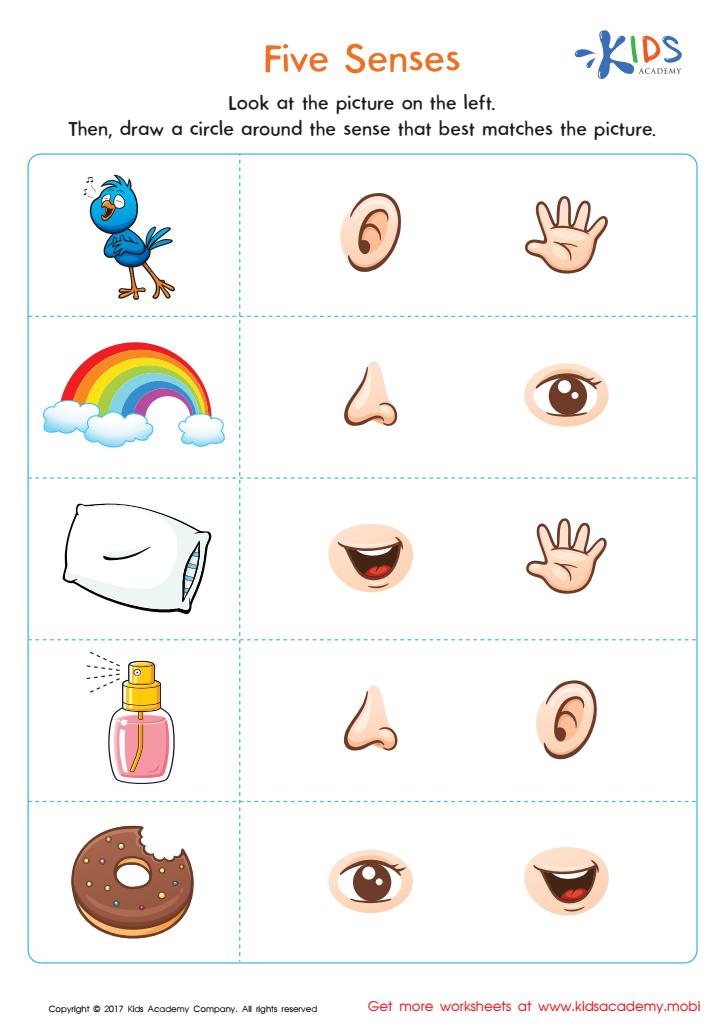Sensory recognition Worksheets for Kids
1 filtered results
-
From - To


Five Senses Printable
Question/Answer
What are some effective activities to train students’ Sensory recognition skill when teaching them about The 5 Senses?
Effective activities for training students’ sensory recognition skills include hands-on experiments like blindfolded taste tests for taste, sound matching games for hearing, texture boxes for touch, scent jars for smell, and color sorting tasks for sight. These activities engage students in practical exploration, enhancing their understanding and recognition of the five senses through direct experience.
Why is the Sensory recognition skill important for Kindergarten students?
Sensory recognition skill is crucial for Kindergarten students as it lays the foundation for learning by helping them understand and interact with the world around them. It enhances their ability to process and respond to sensory information such as touch, smell, sight, and sound, which is essential for cognitive development, problem-solving, and building social skills.
How does the mastery of the Sensory recognition skill affect a student's performance at an early age?
The mastery of the Sensory recognition skill at an early age significantly enhances a student's performance by improving their ability to process information, recognize patterns, and understand their environment. This foundational skill boosts cognitive development, aids in language acquisition, enhances problem-solving abilities, and fosters better academic outcomes by enabling more effective learning and memory retention strategies.
 Assign to the classroom
Assign to the classroom












